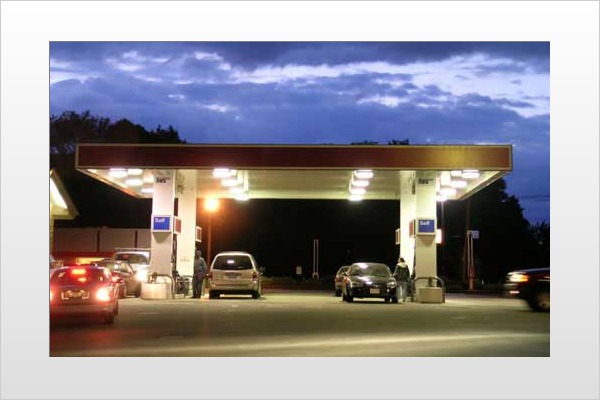
As gas prices rise and consumers look for relief at the pumps, a host of cheap gas offers flood the market. Grocery store chains and discount warehouses are jumping into the gas business with lower-than-the-competitor's prices. Meanwhile, oil companies and even credit cards, offer gas-buying incentives, to lure loyal customers. But is this where the real savings is for motorists?
In general, these offers "depend on how much you shop there and how conveniently located their stations are," said Southern California Auto Club spokesman, Elaine Beno. After all, it doesn't make sense to drive miles out of your way to save pennies on a gallon of gas.
Still, to the casual observer, a 5-cent-per-gallon reduction in gas prices seems like a lot when you are filling a 20-gallon tank. Jason Toews, co-founder of Gasbuddy.com, points out that many such gas savings programs require a membership, which can be $35 to $50 a year. "Right off the top you have to make that money back in savings. Now, if you do a lot of shopping it might be worth it. But is it convenient? If you live close it might work. If not, you might burn more gas getting there, plus your time."
Beno echoed these comments, pointing out that people are "focused on gas prices because they stand next to the pump watching the numbers flying by." In actuality, gasoline isn't the most expensive part of a road trip, she said. Instead, the lodging, meals and other expenses cost more — and offer the greatest chance for savings.
A financial expert contacted by Edmunds.com said that when weighing these come-ons "you have to look at the big financial picture. If it is a discount warehouse, is there a membership to join? If it is a rebate for signing up for a credit card, when do you get your money back? With credit cards you have to be careful of late fees and high interest rates."
Credit card companies have many promotional programs to get you hooked on using their card, a financial advisor said. "Even very disciplined people are occasionally caught not being able to pay off the full balance," a financial advisor said. "If you miss even one payment, you will have lost all the savings you got on cheaper gas."
Instead of chasing the latest offer for gas price reduction, Toews recommended becoming familiar with gas prices in the different areas of your city. On Gasbuddy.com, a system of volunteers post gas prices on the Internet. The amount of variation will surprise you.
The Web site was started in 2000 by Toews, who lives in Minneapolis, Minnesota, because, "I was always frustrated when I filled up and drove down the street and saw gas for 25 cents per gallon cheaper at another station."
This variation is due to the way that the same gas is sold to stations by oil companies in different areas at much higher prices. The pricing system is based on the traffic volume at the gas station and a host of other factors such as the incomes of people living in that area. In Minneapolis, for example, there are several dozen different pricing zones. Within a city, price fluctuation can be more than 20 cents per gallon as compared to the 5 cents per gallon savings offered by credit card rebates or discount warehouses.
In many cases, people are unrealistic about the actual impact that gas price increases have on their budget, Beno said. "Few people are going to be canceling a road trip because of the increase in the cost of gas," she speculated.
Edmunds.com looked at the rising cost of gas over a three-year period (based on California gas prices) and computed what impact that would have on a 3,000-mile road trip for different types of vehicles. The first was a large SUV getting 13 mpg. The second was a family sedan able to get 20 mpg; the third an economy car getting 30 mpg. Below are the related costs.
3,000-Mile Trip Over Three Years
*As of September 2008
In the worst-case scenario, for an SUV getting only 13 mpg, the cost has only risen from $648 for the trip, to $881, an increase of $233. But if that SUV is carrying a family of four, that is still a considerable savings over buying four airline tickets.
Still, as Toews points out, many people take a vacation in a motor home that has a fuel tank holding 100 gallons. At $3.82 a gallon, a tank of gas is $382. A savings of 20 cents per gallon would save this vacationer $20.
A fierce debate is raging over gas quality and what grade of gas you should put in your car. Some motorists pay the extra cost for premium fuel even though it is not recommended by the manufacturer of their car. They seem to feel this is a reward for a hardworking car. In other cases, drivers fill up with regular gas, even though premium is recommended. The answer, according to Beno, is very simple: "Your car will perform best when you use what is recommended in your owner's manual."
While rising gas prices have angered motorists, Beno said the best course for drivers is to make sure our cars are properly maintained and ready for the road. Once this is done, level-headed decisions about gas buying will always be the shortest route to a healthy budget.